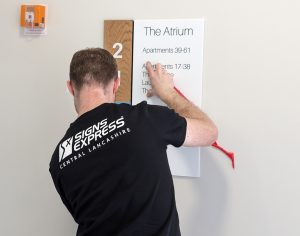In much of society, failure is seen as a bad thing. We are conditioned from a very early age not to fail, not to hold up our hands and not to ‘fess up when we have made mistakes. And this is fundamentally wrong.
Any businessperson, sportsperson or franchise professional will have suffered multiple failures. But the difference between ultimate success and mediocrity is the acceptance of failure as a way to continually improve.”
In some industries in the UK today, failure is openly assessed, evaluated and monitored. Learnings are then copied and communicated widely so that these failures are reduced moving forward. Tragically there are also industries that support a more hierarchical structure, with status, egos and recriminatory practices meaning teams are scared to admit failure. As a result, valuable lessons are missed and the same failures are denied or negated. Ultimately this can lead to even more failures – and in some industries this costs lives as well as businesses.
There are some great books to read on this subject, my favourite of which is Black Box Thinking by Matthew Syed. It draws particular differences between the aviation industry – which predominantly evaluates, reports and upskills based on the learnings of failure – and healthcare, which for many reasons doesn’t seem to welcome the assessment of failure. It shows that, statistically, healthcare has considerably higher failures rates. Fatal failure rates.
So what does this have to do with franchising? “Well, it should help you evaluate your franchisor for a start. Any franchisor who says they haven’t had failures is lying. You should therefore be deeply suspicious of the franchisor who preaches 100% success rates – and yes I have seen a few. It’s better to see a franchisor who has incorporated a method of assessing failure, evaluating it and addressing those issues – and indeed communicating those learnings to their teams – in order to make sure that their product improves.
This means it is safer for you to look at franchises that are a few years old. People investing in a new franchise may enjoy lower investment rates and the thrill of being part of a startup but I know most franchisees now would rather be part of a third or fourth tranche of recruitment when some of the mistakes – by both the franchisor and other franchisees – have been made and lessons learnt.
We actually did a presentation in one of our first network meets – and we now roll it out to all of our new depots – called How to Fail. It lists all the things that you need to do to almost guarantee mucking up your business. It serves as a salutary warning and guides our franchises on making the right choices, following the right path and increasing their probability of success. We also actively encourage interaction and the reporting of failures; taking feedback at every event while monitoring what sales techniques work and, conversely, those that don’t.”
It does take an enormous amount of guts to self-evaluate like this. Society likes to apportion blame or find a scapegoat but this is often a massive simplification that neither delivers improvement nor finds the real essence of problems. Ask yourself this: would you rather be part of a team that is conscious of the people factor, builds that into its model and has taken time to evaluate where it has gone wrong so that it can improve its products? Or would you rather be part of a hierarchical, top-down organisation that is blind to self-improvement and thinks it knows best and everyone else is wrong? I know what I’d prefer.
If you are running a franchise – or are thinking of investing in one – why not ask the franchisor about their failure rates? Ask them what they have learned. Ask them what they do differently now and ask what you need to avoid in order to be their next big success story. Also ask how many years they have been doing it and how they evaluate their successes and failures. This will show you three key things.”
Number one: if they are admitting to failure, this means they are honest. There is not a single decent franchisor I know who hasn’t failed. If they say they haven’t then their definition of failure is flawed or they are just plain lying. “
Number two: if training incorporates learning from failure, this means there is a company ethic of continual improvement. Successes and failures are shared among the team, resulting in better products, services and franchise success rates.
Number three: if franchisors accept failure as being a two-way street, you know they are truly committed to a partnership. But if your franchisor thinks all failures are wholly the franchisee’s fault, it shows that they are not sufficiently self-aware to acknowledge their lack of perfection, which is dangerous.”
If you get your questions about failure answered openly and honestly, it means that you have a very strong foundation on which to build your business.”

Kate Lester
We're very lucky to have former cover star Lester as a columnist; we couldn't think of anyone better to share their insights about all things franchising. Not only is Lester a passionate writer but she is also the founder of Diamond Logistics, the franchise that she intends to have 40 depots and £40m turnover by 2017.

Kate Lester
We're very lucky to have former cover star Lester as a columnist; we couldn't think of anyone better to share their insights about all things franchising. Not only is Lester a passionate writer but she is also the founder of Diamond Logistics, the franchise that she intends to have 40 depots and £40m turnover by 2017.
































